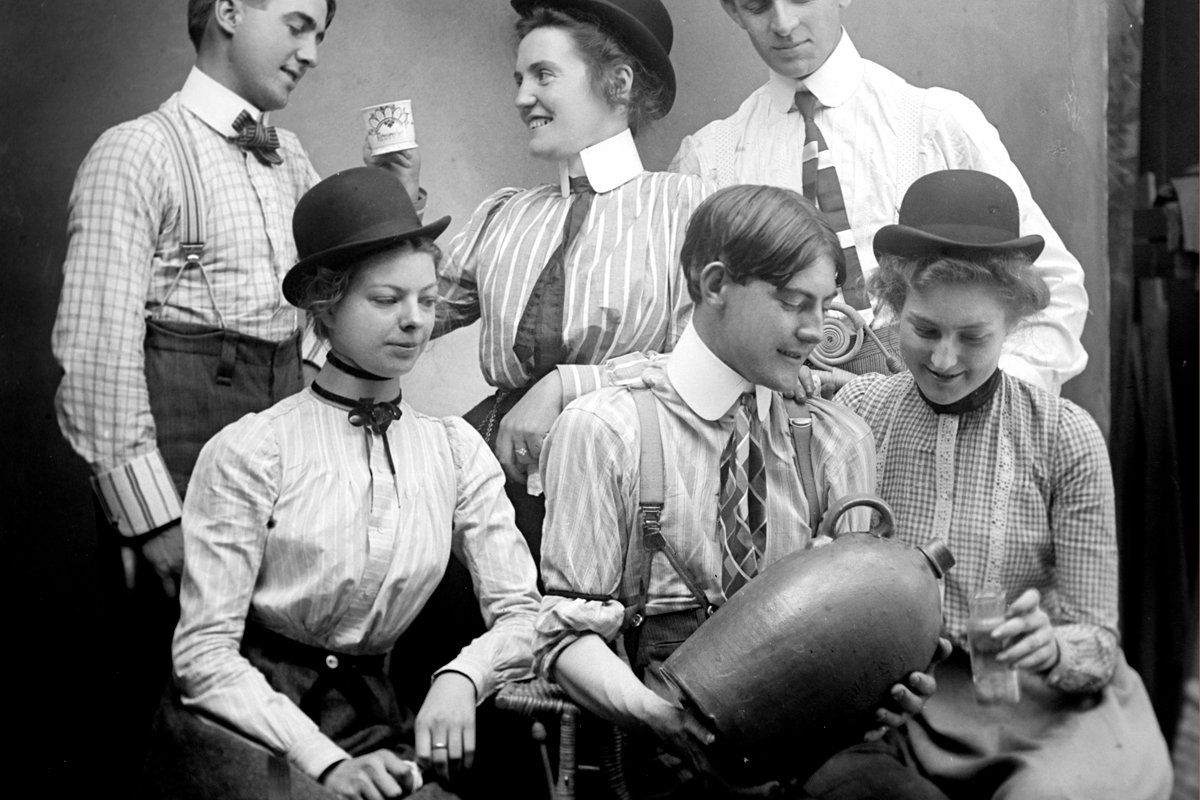
"It's organic!" is usually a selling point at the upscale Astor Wines and Spirits in Manhattan. When Colin Spoelman says it, hawking a table of small bottles featuring vintage-chic labels from his Kings County Distillery, he gets mostly laughs. Maybe that's because he's selling organic moonshine. "Um, is it in a bathtub?" asks customer Wilder Selzer. "When I think of moonshine, I think of dirt and chickens running around."
It's not in a bathtub, nor, for that matter, in Appalachia. Modern moonshiners are among the artisanal, locavore, do-it-yourself foodies who made home-brewed beer, rooftop chickens, and at-home pickling part of the modern lexicon. Members of the Web forum HomeDistiller.org have doubled—to more than 7,000—in the last three years; a Louisville, Ky.–based still manufacturer that just began making small-scale equipment for the first time in its 100-year history says buyers are "coming out of the woodwork"; a copper-still distributor says he can't keep up with demand. And Kings County Distillery's brand is just one of several new moonshines to hit the market. Another, much bigger operation, called Stillhouse, launched its version in September, after owners spent $300,000 to trademark "original moonshine."
The liquor they're selling isn't really even moonshine—that, by definition, is illegally produced. (It's legal to make wine and beer at home as long as they're not being sold. But making a spirit—anything that's more than 40 proof—in an unlicensed still has been against the law since before Prohibition.) Moonshine, hooch, or bathtub gin can be made from just about anything: wine, beer, peaches, you name it. But the oxymoronic "legal moonshine" is usually just unaged corn whiskey—the same stuff that goes into barrels and comes out as bourbon months later. Some 200 small-scale distilleries around the country have sprung up in recent years because of states repealing Prohibition-era laws. In New York, that meant a 2007 change to state law making it cheaper, and easier, to get licenses. For Spoelman and his partner, going legit took little more than a phone interview, which primarily concerned building security—a little surprising given that, as Spoelman himself jokes, the hot, pungent East Williamsburg space looks more like a meth lab than a brewery.
That the operation—and the bottle itself—looks and smells like it's illicit gives Kings County a certain credibility. Part of moonshine's appeal is that it conjures images of an American ideal that feels especially exhalted in a year dominated by anti-government sentiment: the bootlegger is the lone frontiersman, the rebel outlaw, the Marlboro Man. "Our timing couldn't be better," Stillhouse cofounder (and "serial entrepreneur") Brad Beckerman says. "It's irreverent; it's illicit. People like that. They want that edge." That Stillhouse's product isn't actually illicit isn't preventing them from using words like "original," "authentic," and "traditional." A limited-edition bottle comes hidden within two volumes of "Freedom to Shine," whose bindings are so artfully distressed they are easily mistaken for authentically old.
One recent tasting was held at the high-end secondhand store What Goes Around Comes Around, which sells coats that could have been swiped from Grandpa's closet—but for their $400 price tags. The crowd looked like central casting's version of "NYC urban woodsman hip." The only indication that the booze was made more recently than 1910 was the fact that it boasts being "gluten-free."
Whether this "legal" moonshine tastes better than the bathtub variety is a matter of opinion. But authenticity sometimes has a price. The old-fashioned stuff doesn't come with the proof listed on the label, which can lead to an especially ugly morning after. On the other hand, whatever you don't drink can be repurposed as nail-polish remover. No joke.
Uncommon Knowledge
Newsweek is committed to challenging conventional wisdom and finding connections in the search for common ground.
Newsweek is committed to challenging conventional wisdom and finding connections in the search for common ground.
About the writer
To read how Newsweek uses AI as a newsroom tool, Click here.








